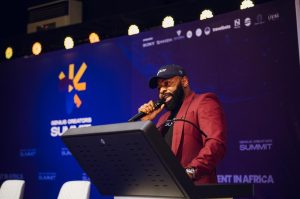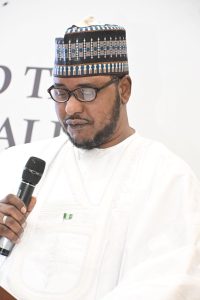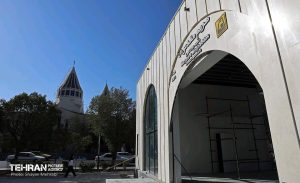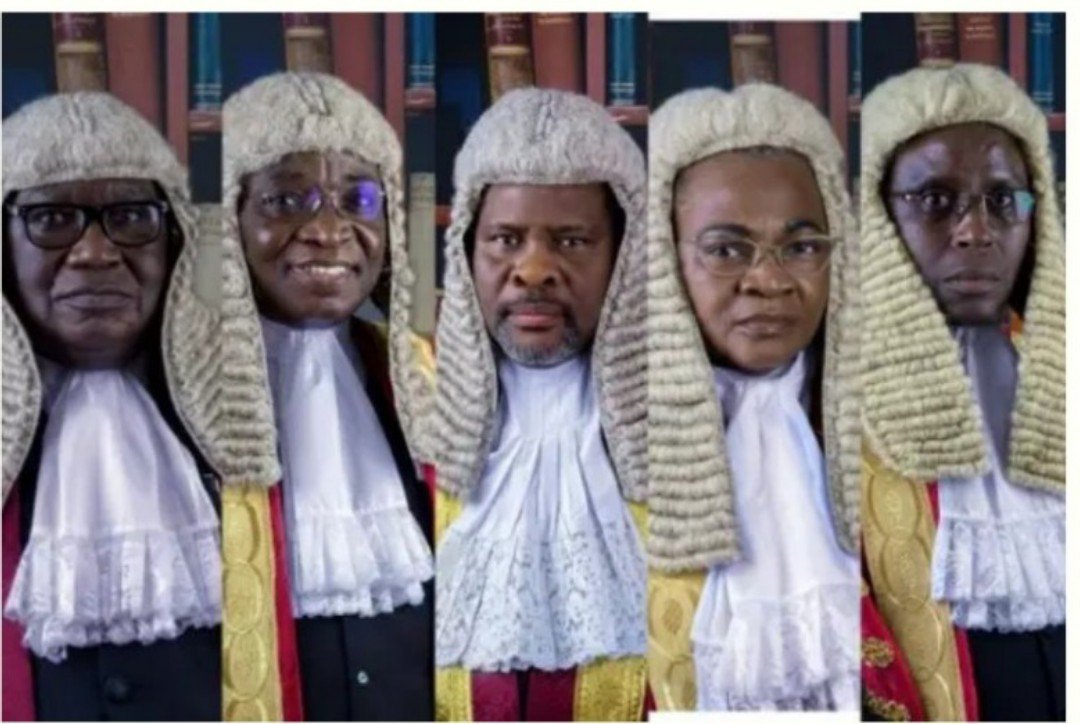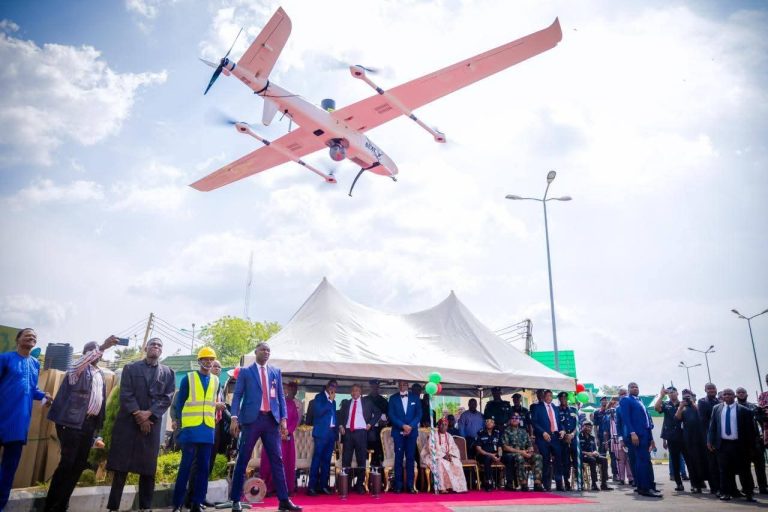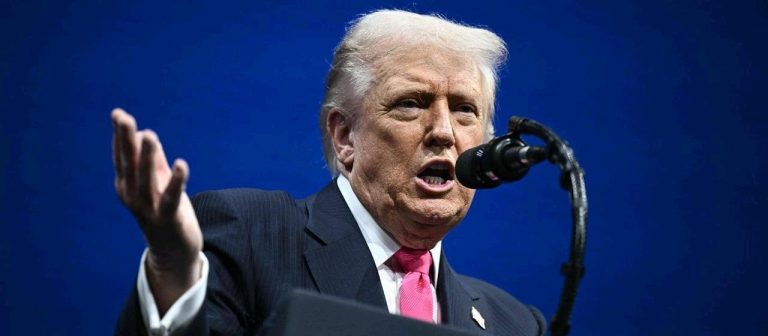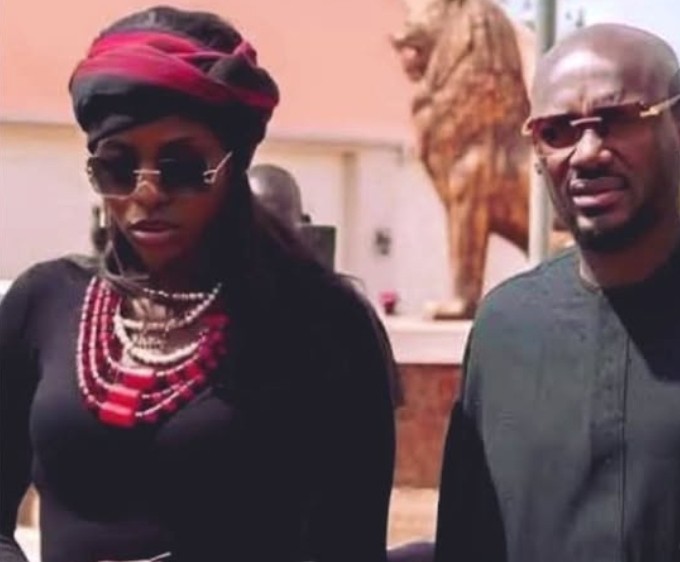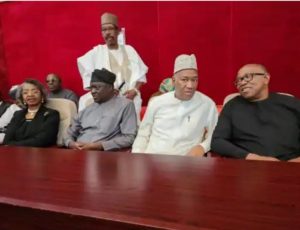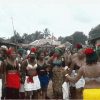Tribunal: Here are Panel of Judges Set to Determine the Fate of Tinubu, Atiku, and Obi.
In May, the Presidential Election Petition Tribunal embarked on its proceedings, with various justices presiding over petitions related to the 2023 presidential election. Five political parties, including the PDP, LP, Action Peoples Party (APP), Allied Peoples Movement (APM), and the Action Alliance (AA), submitted separate petitions to challenge Tinubu’s victory.
The five-member panel of justices is under the leadership of the presiding justice, Justice Haruna Tsammani. On the day of the final verdict, these jurists will convene and potentially vote to reach a decision, addressing any disagreements arising from the trial. It’s important to note that this decision isn’t final, as an aggrieved party can still appeal to the Supreme Court.
Nonetheless, many legal experts believe that the Court of Appeal’s decision often sets the tone for the Supreme Court’s final judgment, whether in agreement or disagreement.

Let’s get acquainted with the judges presiding over the tribunal:
Justice Haruna Tsammani
Justice Haruna Tsammani, born on November 23, 1959, in Tafawa Balewa LGA of Bauchi State, boasts an extensive legal career. He obtained his LL.B degree from Ahmadu Bello University, Zaria, in 1982, and subsequently earned his BL in 1983 at the Nigerian Law School, Lagos. Tsammani commenced his judicial journey as a High Court judge in Bauchi State on September 17, 1998.
VIDEO: Brice Nguema – Architect of Gabon Coup – Hailed by Soldiers as Nation Seeks Change
His remarkable career reached a milestone when he was elevated to the Court of Appeal on July 16, 2010, becoming the longest-serving Justice among the five members of the panel. In this capacity, he has contributed to several significant judgments. One of note is his ruling in Abuja that affirmed the second-term election of Governor Yahaya Bello of Kogi State. Additionally, he delivered a judgment that issued an order restraining the Rivers and Lagos state governments from taking action on their bids to collect Value Added Tax (VAT). These rulings highlight his experience and legal acumen.
Justice Stephen Adah
Justice Stephen Adah, born on June 13, 1957, hails from Dekina Local Government Area of Kogi State. His legal journey commenced with an LL.B degree from Ahmadu Bello University, Zaria, in 1981, followed by his BL from the Nigerian Law School, Lagos, in 1982. Adah was appointed as a judge of the Federal High Court on November 12, 1998, and later, on November 5, 2012, was elevated to the Court of Appeal.
READ: Amb. Famoussa Touré, and Wife Amb. Mariame Koné Touré Distributes Food Items to Orphanage in Abuja
Justice Adah’s role as a member of the three-man panel that granted Obi and Atiku’s motions to serve Tinubu their petitions by substituted means demonstrates his commitment to ensuring that justice is served. He also delivered the lead judgment of a three-member panel that affirmed the conviction of a former Plateau State governor, Joshua Dariye, on November 16, 2018. This case garnered significant attention as President Muhammadu Buhari later granted a widely criticized pardon to Dariye, despite the conviction being affirmed by the Supreme Court.
Justice Mistura Bolaji-Yusuf
Justice Misitura Bolaji-Yusuf, born on August 7, 1959, hails from Oyo West LGA of Oyo State. She embarked on her legal journey with an LL.B degree from the Obafemi Awolowo University, Ile-Ife, in 1983, followed by her BL certificate from the Nigerian Law School the following year. She was appointed a Judge of the High Court of Oyo State on January 30, 1997, and later, on March 24, 2014, was elevated to the Court of Appeal.
Justice Bolaji-Yusuf brings diversity to the panel as its only female member. Her experience in the legal field and her tenure as a High Court Judge in Oyo State have prepared her for the intricacies of the cases before the tribunal.
Justice Boloukuoromo Ugo
At 57, Justice Boloukuoromo Ugo stands as the youngest among the judges on the panel. He hails from Kolokuma/Opokua Local Government Area of Bayelsa State. His legal education commenced with an LL.B degree from the University of Calabar in 1989, followed by a BL certificate from the Nigerian Law School in Lagos the following year. He began his judicial career as a Judge of the High Court of Bayelsa State on March 21, 2006, and later, on March 24, 201[XX], was elevated to the Court of Appeal.
Justice Ugo’s relatively youthful perspective on the bench can bring a fresh outlook to complex legal matters. His journey from the High Court to the Court of Appeal signifies his dedication to the field of law.
Justice Abba Mohammed
Justice Abba Mohammed, originally from Kano State, was born on February 19, 1961. He embarked on his legal studies with an LL.B degree from the Institute of Administration, Ahmadu Bello University, Zaria, in 1984. Following this, he attended the Nigerian Law School in Lagos the following year, obtaining his BL certificate in 1985. His judicial career began with an appointment as a judge of the Federal Capital Territory (FCT) High Court in 2010.
After approximately 10 years of service in the FCT High Court, he was promoted to the Court of Appeal on June 28, 2021. Notably, Justice Mohammed served as the Chairman of the Nasarawa State Governorship Election Tribunal in 2019, demonstrating his experience in handling politically sensitive cases.
These profiles offer a deeper insight into the judges presiding over the tribunal and their notable contributions to the legal field, showcasing their diverse backgrounds and experiences in handling complex and important cases.
DO YOU HAVE ANYTHING YOU WANT TO TELL US ABOUT NIGERIA? CLICK HERE TO JOIN ESSENCE FORUM AND SHARE YOUR TOPICS WITH OVER 4000 MEMBERS.
WATCH MORE NEWS ON OUR YOUTUBE CHANNEL CLICK HERE TO SUBSCRIBE
Tribunal: Here are Panel of Judges Set to Determine the Fate of Tinubu, Atiku, and Obi
Discover more from TOKTOK9JA MEDIA
Subscribe to get the latest posts sent to your email.

